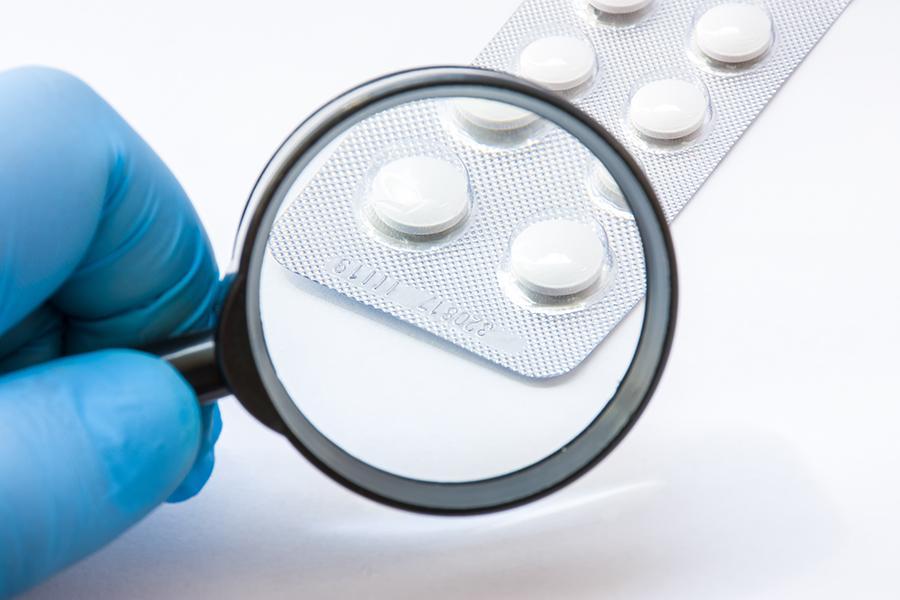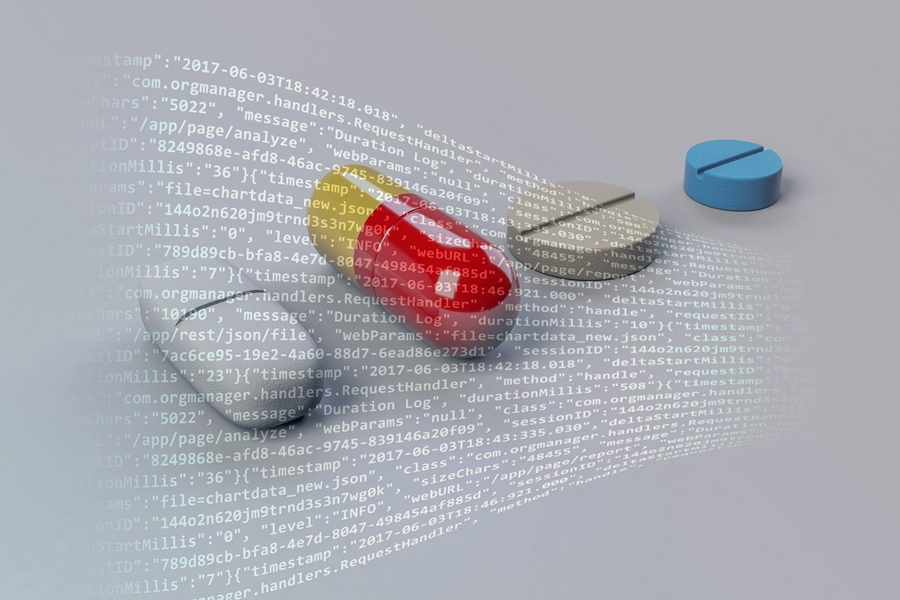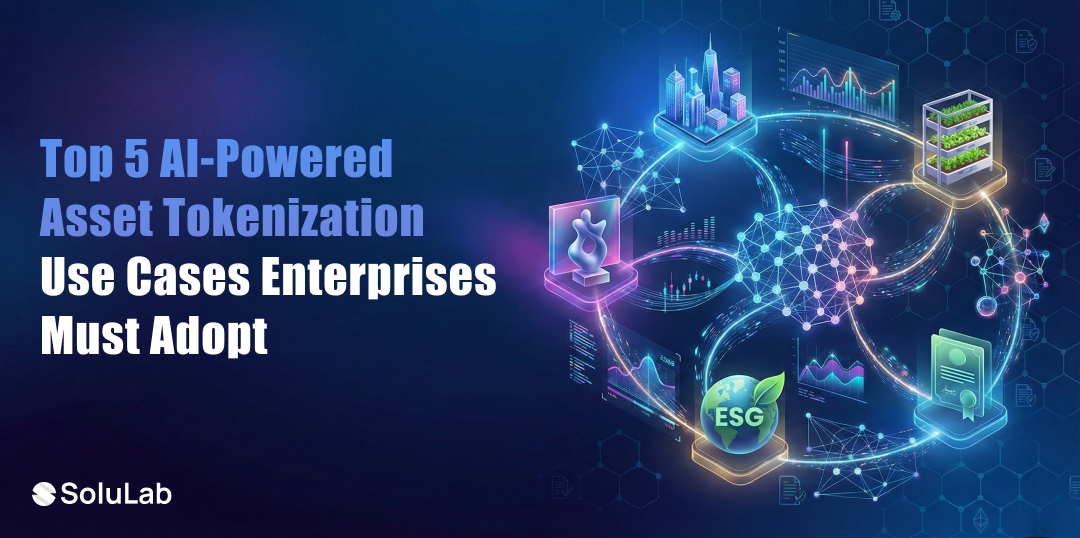In the healthcare industry, where ever loopholes are available in the pharma supply chain, mal-practitioners try to counterfeit original drugs with fraudulent drugs. Hence, blockchain in drug supply chain is now the talk of the town.
According to the report submitted by World Health Organization (WHO), 15% to 30% of the total drugs sold in the world account to fake or counterfeit drugs, especially in the developing countries.
In industrialized countries, counterfeit drugs account to a minimum of 1% in every single pharma supply chain.
If healthcare industry keeps progressing with counterfeit drugs at this rate, the world is only going to get worse. Blockchain in drug supply chain, serves to take care of the healthcare industry in fighting against fake and counterfeit drugs. It hurts even to imagine counterfeit drugs for cancer. In the recent years, WHO report states that there has been a significant increase in medicinal theft and selling of uncertified drugs.
Enterprise blockchain development for medicines focus on ensuring that pharmaceutical retailers sell only the genuinely certified and verified drugs.
To avoid chronic spread of epidemic diseases and fighting medical fraud, blockchain is one of the best solutions. With the help of blockchain technology, identifying toxic ingredients and identifying counterfeit ingredients deviated from original prescription can be identified before any sales.
Keep reading to know how blockchain in drug supply chain fights to ensure that a safe and sound healthcare service is provided.
Role of Blockchain in Drug Supply Chain To Fight Fake And Counterfeit Drugs
Here is how blockchain is re-structuring medical industry to fight fake and counterfeit drugs.

Identify The Source of Origin For Every Drug
One of the major reasons for counterfeit drugs to enter the industry of healthcare is due to the obstacles in identifying the original source from where the drugs are originating from. If the location of the manufacturer and supplier of the drugs can be identified with appropriate certifications, that is already a big step towards stopping production of counterfeit drugs.
Blockchain in drug supply chain helps to identify manufacturers, suppliers and vendors with authenticated identity and certification via its proof of work, proof of stake and proof of providence.
Detail recording of data with smart contracts
One of the major challenges faced in healthcare and medical industry as a whole is the handling of discrepancies in data stored. Every medical supply chain and operation goes through a channel involving one too many personnel and technology devices. Retrieving necessary drug data is traditionally hard because information is stored in multiple systems at different locations and even time zones.
Smart contracts that operate with blockchain aims at putting a full stop confusion caused due to storage of information in multiple systems. Smart contracts combine all drug manufacturers and suppliers under one smart system. Starting from drug dispatch till end delivery location, all transactions and operations can be monitored in real-time.
Read More: Insights of Blockchain Technology in Drug Discovery
Seek out the ingredients of every drug sold
One another major factors that influence fraudulent activities to occur in the healthcare industry is the failure to track minutest details such as ingredients used to manufacture drugs. Not because pharmaceuticals didn’t want to track such details. Rather it was because information of drug manufacturing was spread and it was time consuming to get too many approvals to have visibility in ingredients used.
With blockchain, the process or attaining such details is simplified. Using smart contracts and proof of authenticity, every drug detail will be visible to everyone. Manufacturers can even protect the ingredient details with encryption installation of QR codes in drugs sold.
Ensures regulatory compliance
According to World Health Organization (WHO), today, most of the drugs are exported from country to country due to differences in manufacturing costs, raw material availability, etc.
Blockchain ensures that every drug manufactured and sold is compliant with the standard regulations set by the Food and Drug Administration (FDA).
With blockchain, medical industry can say goodbye to long and lengthy paperwork and time-consuming processes of getting drugs approved or process of verifying drug quality.
Transparency in supply chain

Blockchain based Digital Ledger Technology (DLT) is one way to counterfeit fake drugs extensively in medical industry. DLT integrated with (Internet of Things) IoT allows data transfer at the speed of light without compromising transparency. Each user gets to create their own node system and each information is split between different nodes with its own encryption and decryption key.
Thus, everyone involved within a particular drug supply can see all transactions anytime from anywhere without accessibility to manipulate any data.
Integration with IoT for temperature-controlled shipment
Certain drugs require highly cold-based environment to ensure preservation of ingredients. Different drugs have different temperature and packaging requirements. Traditionally, such drugs were transported in temperature-controlled trucks and shipment containers but how far temperature was controlled is not visible. For instance, maybe the suppler decided to control the temperature in secrecy only for half of the shipment journey to save cost. This is hard to identify.
With blockchain, now consumers and pharmacies can track and monitor the temperature-controlled environment throughout the shipment journey.
Avoid glitching of networks
Storing medical information and drug data in a centralized system has higher chances of getting hacked and being vulnerable to security threats. This is because all information is under one single system maintained and controlled by one server. If the server fails or system fails, the consequences maybe catastrophic in medical industry.
Blockchain stores information under one platform but with multiple systems and each system with a group of clusters and nodes each of within which the information is spread. Thus, even when one system fails, the drug information can be accessed from another system.
Conclusion: Blockchain protects medical industry against harmful drugs

Saving life and maintaining a good health-life balance is of the utmost importance today. All of us are busy with our respective daily chores and professional works. We may not have the time to wait for longer periods of time to identify drug authenticity and ingredient originality. But with blockchain in drug supply chain, every one of us get the accessibility to stay informed and take care of health in a smarter way with smarter drugs.
Reducing transactional costs and managing supply chain end-to-end is possible with blockchain which also helps to reduce fake drugs in the process. Let us know your perceptions and views on approaches provided through blockchain in drug supply chain to fight against counterfeit drugs.




